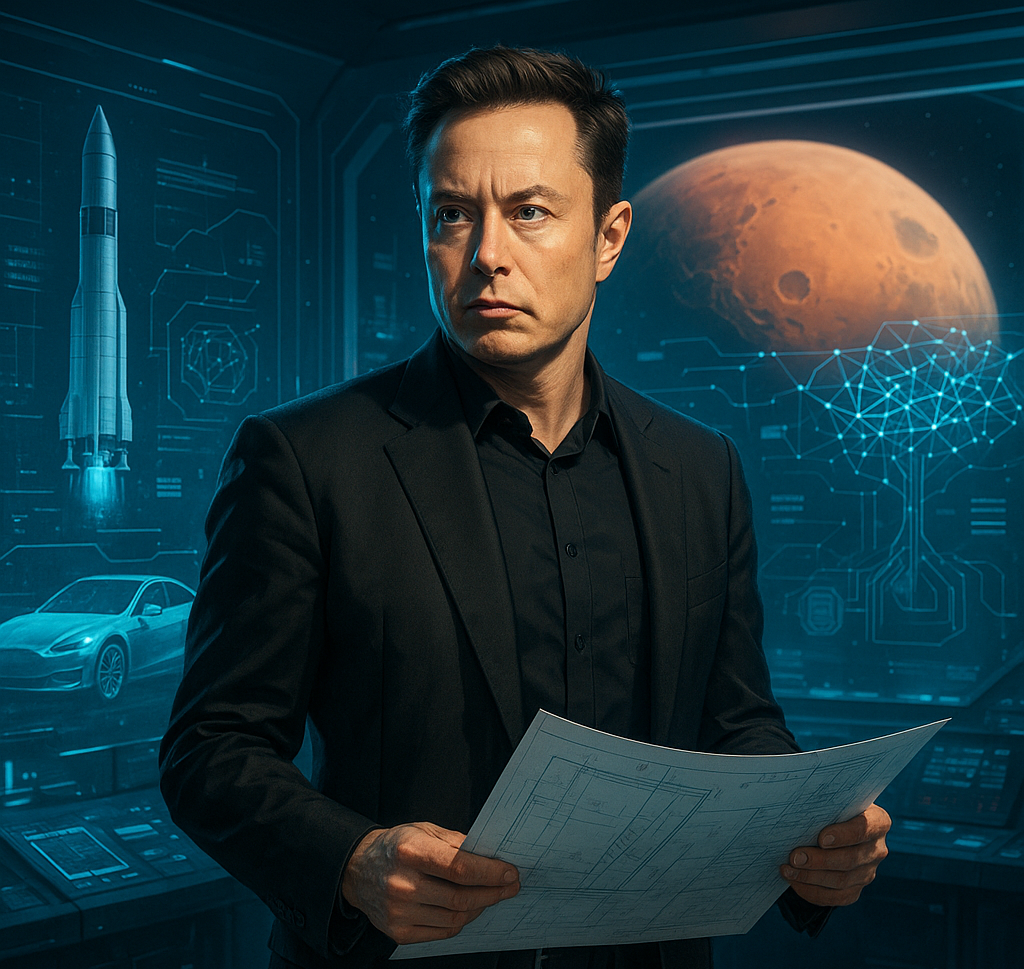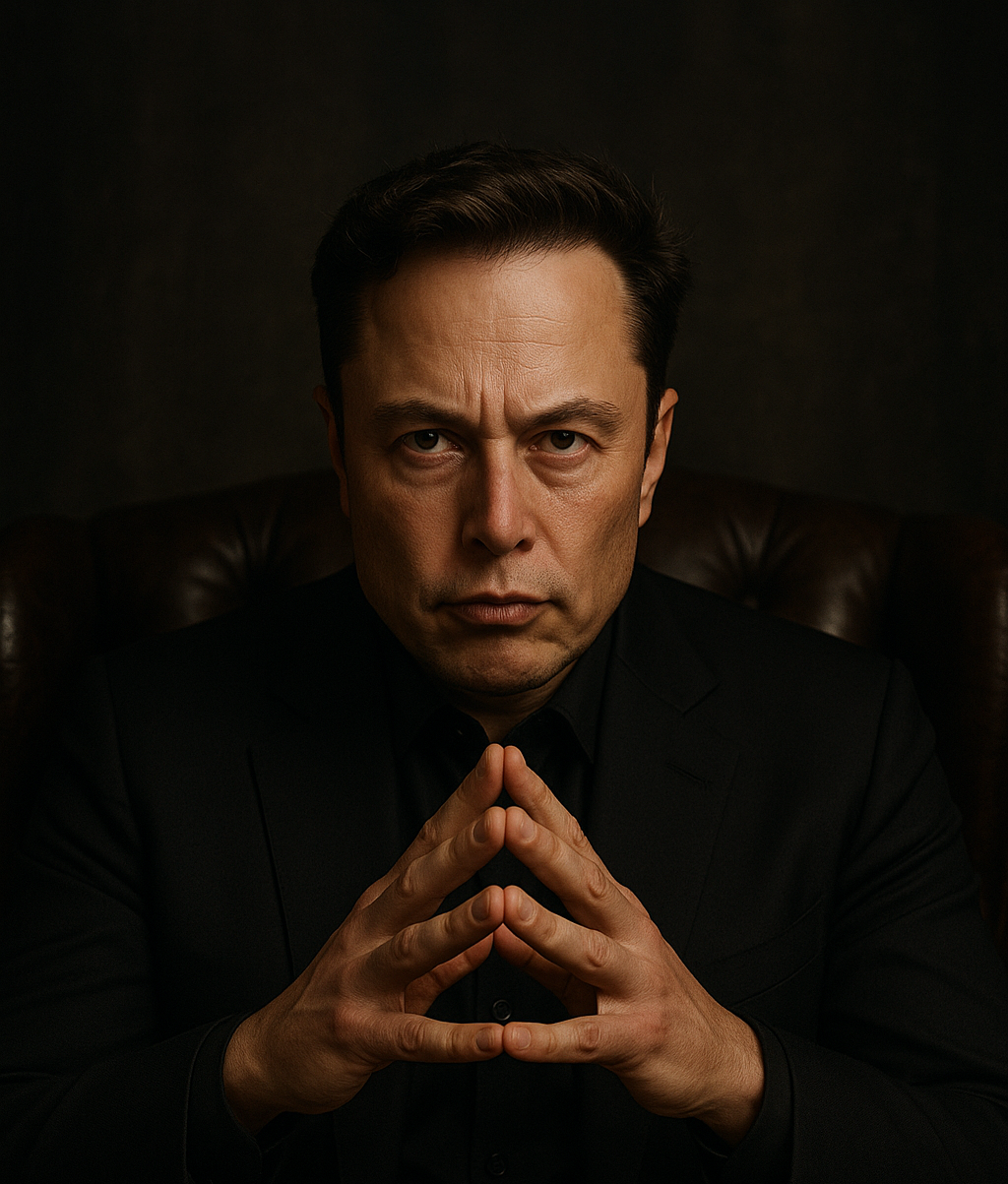Elon Musk’s Brain Isn’t Wired Like Yours — And That’s Exactly Why He’s Changed the World
What kind of mind dares to build reusable rockets, revolutionize electric vehicles, and joke about colonizing Mars—all at once? Elon Musk isn’t just eccentric. He’s structured chaos. And that’s why one question fascinates everyone: What’s Elon Musk’s personality type?
The answer? INTJ.
In MBTI (Myers-Briggs Type Indicator) terms, that’s the “Architect” personality. And no one embodies it more intensely than Musk. Logical, future-focused, brutally honest, emotionally reserved—but with a secret soft spot.
1. He Reinvents, Even If It Hurts (The Self-Destruct Trait of INTJs)
In 2008, SpaceX had failed three rocket launches in a row. His marriage was falling apart. Tesla was bleeding money. Most people—any type—would’ve stepped back. Reassessed. Cut losses.
Musk? He doubled down. Took the last of his personal fortune—$40 million—and bet everything on one final launch.
That fourth rocket? It worked. NASA noticed. SpaceX survived.
INTJs have a secret trait: when their vision is under threat, they don’t compromise—they burn the boats. It’s painful. It isolates them. But their belief in the mission overrides comfort, logic, even emotional well-being.
“Persistence is very important,” Musk said. “You should not give up unless you are forced to give up.”
Musk once said he was “hours from bankruptcy” during that 2008 crisis. He had to borrow money from friends to pay rent. Most founders would’ve sold their companies. But he never considered giving up ownership or vision.
That kind of blind, calculated grit? It’s INTJ fuel.
2. He Hates Being Managed (But Not Because He’s a Rebel)
In the early Tesla years, board members tried to replace him as CEO. Musk refused. He didn’t yell or rant—he just said, calmly: “I’m going to run this company.”
When one of his execs challenged a decision, Musk replied:
“I’m the reason we exist. If you think that’s arrogant, I don’t care.”
INTJs aren’t rebels. They’re autonomous architects. They don’t fight rules—they just build better systems. And if someone tries to control that process, they quietly, firmly, remove the friction.
Unlike an ENTP, who argues for fun, an INTJ simply reshapes the battlefield in silence.
When Apple was struggling in the ’90s, Steve Jobs returned with board control. Musk has cited that move as one he admired. Like Jobs, Musk believes leadership isn’t about compromise—it’s about mission enforcement.
3. He Feels Too Much—But Buries It to Function
When Musk was asked in a Rolling Stone interview if he was lonely, he paused, then said:
“If I’m not in love, if I’m not with a long-term companion, I cannot be happy.”
He later started off, visibly emotional.
This is a guy who runs four companies, launches rockets, and tweets “doge to the moon”—yet quietly admits he aches when alone.
This is the shadow of Introverted Feeling (Fi)—INTJs feel deeply, but only trust logic to make decisions. So their feelings don’t vanish… they get internalized.
What looks cold on the outside is often emotional self-preservation.
In a TED interview, Musk teared up talking about his heroes turning on him. “I wish they would come visit the factory,” he said softly. This shows the internal conflict between his need for respect and his rational INTJ outer shell.
Musk hides his heart under blueprints. And that’s peak INTJ.
4. He Creates to Solve, Not to Impress
When he launched the Cybertruck, people laughed. Critics mocked its design. But Musk didn’t blink. Why? Because he didn’t make it to look cool.
He made it for function: ultra-durable, sustainable, off-grid capable. When it failed a window test live on stage, he didn’t spiral. He shrugged and said, “We’ll fix it in post.”
INTJs don’t chase approval. They chase elegance in design. If that elegance looks weird to others, so be it. They don’t need the crowd—they need the logic to work.
Cybertruck’s body is made from ultra-hard 30X cold-rolled stainless steel—overkill for a truck, but essential in Musk’s mind for a post-apocalyptic world. His logic always precedes style.
5. He Outsources Social Stuff to Conserve Mental Energy
Ever noticed how Musk communicates? Emails at 1 a.m. Short replies. Monotone voice. He once said, “I don’t really have a filter.”
His assistant once booked him for a fancy event. He ghosted it last minute. When asked why, he said: “It didn’t help with engineering.”
INTJs conserve social energy like battery power. Every social interaction is a transaction—and if it doesn’t serve the mission, they skip it.
Musk once told Lex Fridman: “I find it very hard to turn off my brain.” His downtime consists of gaming, engineering, or Reddit—activities that let him recharge without typical extroverted stimuli.
They’re not rude. They’re economical with attention.
6. He’s Brutally Honest—Even When It’s Bad for PR
In 2021, when Tesla stock was soaring, Musk tweeted:
“Tesla stock price is too high imo.”
The stock dropped billions. Shareholders panicked.
But Musk didn’t delete it.
INTJs value truth > harmony. They don’t sugarcoat. They optimize reality. If a truth needs saying, they’ll say it—even if it costs them.
He has criticized regulators, short-sellers, and even employees—publicly. “Some people don’t like change, but you need to embrace change if the alternative is a disaster,” he tweeted once.
They aren’t tactless—they just prioritize clarity. And in Musk’s case, sometimes too much clarity.
7. He’s Building for a Future He’ll Never See
Let’s be real: Musk won’t live to see a thriving Martian colony. He knows it. When someone asked him about retirement, he said:
“I’ll probably die on Mars. Just not on impact.”
He’s building something 100 years ahead.
This is the soul of Ni: long-range vision beyond the self. INTJs don’t build for likes. They build for legacies. They think in centuries.
Musk spends up to 90 hours a week split between Tesla and SpaceX. Not for profit—most of his money stays in his companies. He said, “I don’t want to be anyone’s boss. I just want to make things happen.”
It’s not ego. It’s legacy engineering.
So… Is Elon Musk an INTJ?
You bet. But he’s not a textbook INTJ. He’s what happens when an INTJ with massive vision, extreme risk tolerance, and emotional self-discipline actually follows the vision all the way.
He doesn’t just fit the INTJ profile.
He redefines what an INTJ looks like when they have full control of their tools, their environment, and their time.









